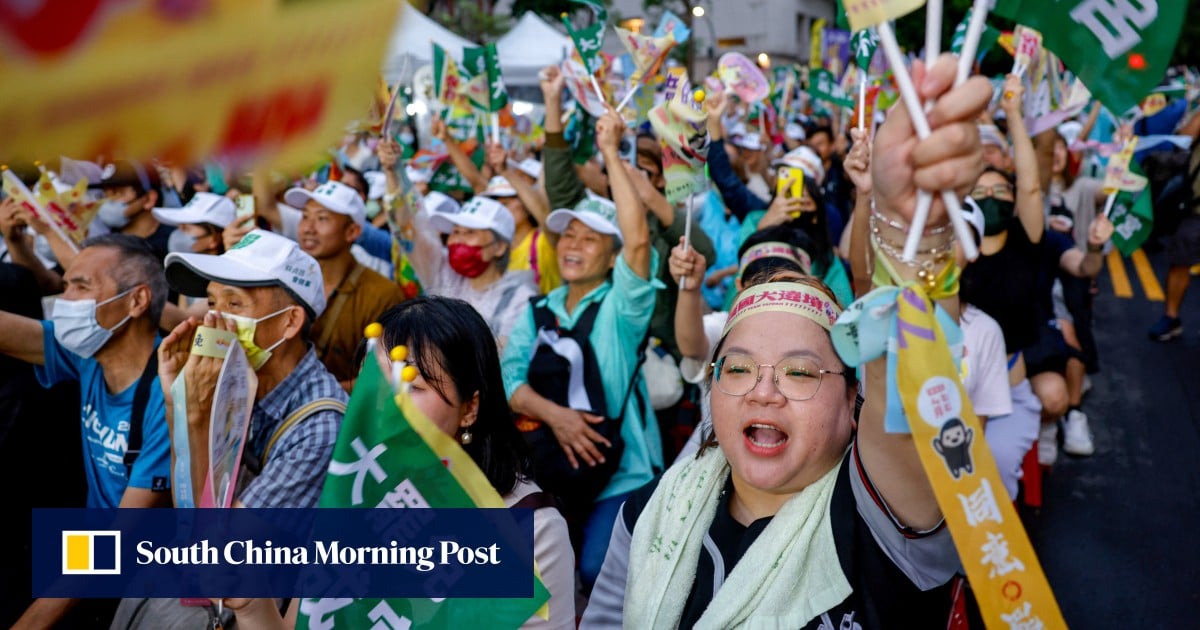The unprecedented mass recall vote – set to begin at 8am Saturday, mainly targeting lawmakers from the main opposition Kuomintang (KMT) – has triggered intense political debate and could shape the island’s trajectory ahead of next year’s local government polls as well as the election of the island’s leader in 2028.
Twenty-four legislators – all members of the Beijing-friendly KMT – face recall votes organised by pro-DPP civic groups with strong backing from the ruling party. Another seven KMT lawmakers will face recall votes on August 23. All have been accused by recall organisers of “selling out Taiwan to China”.

Supporters of the recall campaign gather on Tuesday outside a Taipei metro station shouting “Great recall, great success”. Photo: AFP
“The vote on Saturday is not just about legislative control. It is a litmus test for how far the ‘resist China, protect Taiwan’ campaign can go,” said Max Lo, executive director of the Taiwan International Strategic Study Society, a Taipei-based think tank.
Those remarks have been seized upon by DPP supporters as proof of the KMT’s alleged closeness to mainland China. Beijing, which regards Taiwan as a part of China to be reunited by force if necessary, has intensified military pressure on the island since Lai took office in May last year and provoked Beijing with “separatist” and pro-independence remarks.
The United States, like most other countries, does not recognise self-governed Taiwan as independent. However, it is opposed to any unilateral change to the status quo and is committed to supplying the island with weapons for defence.
